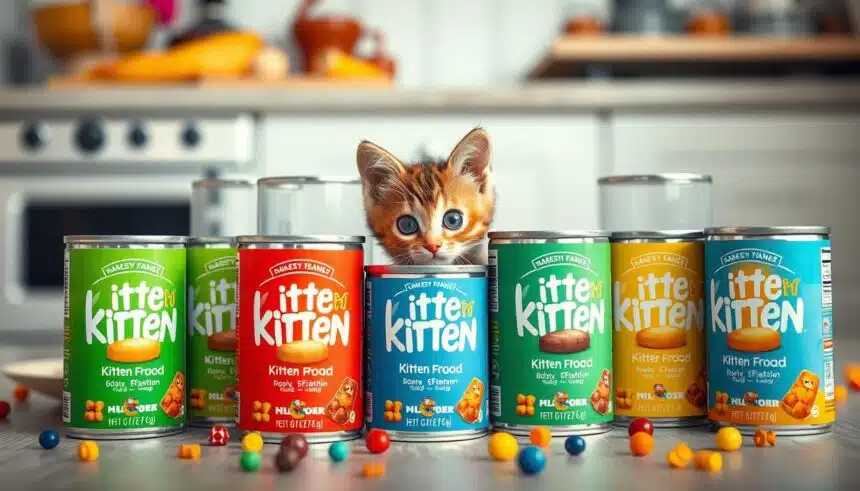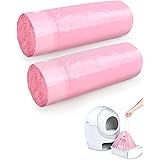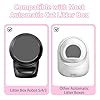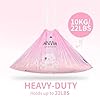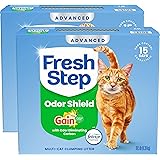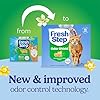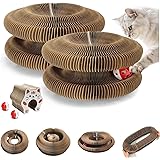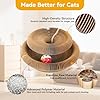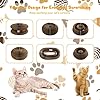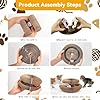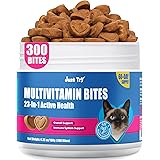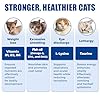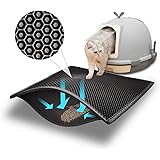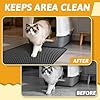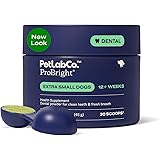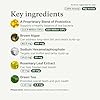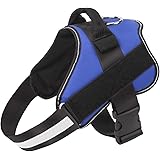As a cat owner, giving your kitten the best nutrition is key. Canned kitten food is a great choice. It’s tasty and packed with nutrients your kitten needs. There are many premium options, so you can find the perfect one for your kitten.
Choosing the right canned kitten food is important. Look for high protein, low fat, and low carbs. Canned kitten food has about 40-50% protein. This helps kittens grow strong and healthy.
Key Takeaways
- Canned kitten food provides essential hydration and nutrients for kittens.
- Premium canned kitten food offers a wide range of textures and flavors to suit individual needs.
- Canned kitten food typically contains higher protein levels compared to dry cat food and regular adult cat food.
- A canned diet can help reduce the incidence of obesity-related diseases in cats.
- Early dietary choices are crucial, as cats can develop “habituation” based on their early feeding patterns.
- Choosing the best canned kitten food requires considering the nutritional value and ingredients.
What is Canned Kitten Food?
Canned kitten food is a special meal made just for kittens. It has lots of calories, protein, and fat to help kittens grow strong. There are many brands to choose from, including organic options, to meet different needs.
Definition and Purpose
Canned kitten food is a tasty, nutritious meal for kittens. Vets often suggest it because it helps kittens stay hydrated. Kittens need more water than adult cats.
Key Ingredients
Canned kitten food has good protein, omega-3 fatty acids, and important vitamins and minerals. Some brands use organic ingredients, making organic canned food popular. Wet food is usually better for kittens because it’s more hydrating.
Feeding kittens canned food has many benefits. It includes:
- High moisture content to support hydration
- Palatable texture and taste
- Convenient and easy to serve
When picking canned kitten food, think about the kitten’s age, needs, and likes. Choosing a top-rated or organic canned food ensures your kitten gets a balanced meal. This supports their growth and health.
| Food Type | Moisture Content | Protein Content |
|---|---|---|
| Canned Kitten Food | 70-80% | 30-40% |
| Dry Kitten Food | 10% | 20-30% |
Benefits of Canned Kitten Food
Canned kitten food is great for young cats. It has high protein and is grain-free, matching their natural diet needs. A study shows wet food is key for kittens, giving them vital nutrients and moisture. This is especially good for kittens with health issues like kidney disease or diabetes.
Some main benefits of canned kitten food are:
- It has lots of protein, which is crucial for a kitten’s growth and health
- Grain-free options can lower allergy and digestive problems risks
- It has more moisture, which is good for a kitten’s health and happiness
When picking canned kitten food, look for top-quality ingredients and little processing. Wellness Pet Food and other trusted brands have grain-free kitten food. It’s full of protein and nutrients. For more on grain-free kitten food, check out catsjoys.com.
How to Choose the Right Canned Kitten Food
Choosing the best canned kitten food involves several key steps. First, read the labels closely. Look for high-quality protein sources, whole ingredients, and no fillers or by-products. It’s crucial to pick a premium canned kitten food that meets the Association of American Feed Control Officials’ standards.
A quality canned kitten food should have lots of animal protein and avoid by-products for better health. The right mix includes protein, fat, and calcium. Kittens need 30% of their energy from protein, with a minimum of 35% in kitten formula. The best food also has important vitamins and minerals like Vitamin A, D, E, K, calcium, phosphorus, iron, and zinc.
- Life stage: Choose a food that is formulated for your kitten’s specific life stage, whether it’s a newborn, growing, or adult cat.
- Ingredient quality: Look for whole ingredients, such as chicken or salmon, and avoid fillers and by-products.
- Nutritional content: Ensure the food meets the recommended nutritional standards for kittens, including protein, fat, and calcium.
By considering these factors and choosing a premium canned kitten food, you can provide your kitten with the nutrients they need to grow and thrive.
The Role of Moisture in Kitten Nutrition
Moisture is key for a kitten’s health, especially for hydration and urinary health. Canned kitten food, like organic canned kitten food, is full of water, about 70%. This is much more than dry food, which has only about 10% water.
A diet rich in moisture helps prevent dehydration and keeps the urinary system healthy. The difference between dry and wet cat food shows canned food is better for kittens. It lets them eat more without getting too many calories.
Importance of Hydration
Keeping kittens hydrated is very important, especially for those with urinary or kidney diseases. Canned kitten food helps increase water intake. This reduces the chance of dehydration and related health problems.
Comparison with Dry Food
Canned kitten food has more moisture and less carbs than dry food. While dry food is easy and cheap, it doesn’t hydrate as well as canned food. A mix of different foods is best for a kitten’s balanced diet and health.
Popular Canned Kitten Food Brands
Choosing the right canned kitten food is important. Many experts suggest grain-free kitten food for its nutritional benefits. Brands like Hill’s Science Diet, Royal Canin, and Wellness offer formulas for kittens at different stages and lifestyles.
These brands provide high-quality, nutritious food for kittens. For instance, Hill’s Science Diet has formulas for various life stages and lifestyles. Royal Canin offers tailored nutrition for different kitten lifestyles. Wellness focuses on natural ingredients and holistic nutrition, making it a top choice for top-rated canned kitten food.
When looking for canned kitten food, consider these key features:
- High protein content (around 30-40%) for growth and development
- Essential nutrients like DHA, calcium, and phosphorus
- No fillers or artificial flavors
- Meat or fish as the first ingredient
Choosing a reputable brand ensures your kitten gets the nutrition they need. Whether you choose Hill’s Science Diet, Royal Canin, or Wellness, always read labels and consult your vet. This helps find the best grain-free kitten food for your kitten’s needs.
| Brand | Formula | First Ingredient |
|---|---|---|
| Hill’s Science Diet | Kitten Food | Chicken |
| Royal Canin | Kitten Food | Salmon |
| Wellness | Grain-Free Kitten Food | Turkey |
Feeding Guidelines for Kittens
Feeding kittens the right amount of food at the right time is key for their growth. Kittens need high-protein canned kitten food to grow fast. The best canned kitten food gives them the nutrients they need for health.
To find the perfect feeding schedule, consider the kitten’s age, weight, and how active they are. Kittens should start eating solid food at 5-6 weeks. By 7-8 weeks, they should eat only solid food. A 2-month-old kitten weighing 2 pounds needs about 150 calories a day.
Here are some feeding guidelines for kittens:
* Kittens under 4 months should eat three times a day.
* After 4 months, they can eat twice a day.
* The daily calories needed depend on age and weight. Aim for 2.5 times the resting energy requirement (RER) in calories for healthy growth.
Watching calorie intake is important to avoid obesity and ensure the kitten gets the right nutrients. Talk to a vet to find the best feeding schedule and portion sizes for your kitten. This will depend on their needs and the best canned kitten food available.
Transitioning from Kitten Food to Adult Food
As kittens grow, their diet needs change. It’s important to switch to adult food to meet their nutritional needs. Kittens should eat kitten food until they are about 90 percent of their adult weight. This is usually around 10 to 12 months old.
But, big cats might take longer to grow up. They might need kitten food until they are 18 months to 2 years old.
Switching to adult food should be done slowly to avoid upset stomachs. A 7 to 10-day transition period is best. Start by mixing kitten food with adult food, gradually adding more adult food.
Here’s a simple transition plan:
- Days 1 and 2: 25% new diet to 75% old diet
- Days 3 and 4: 50% new diet to 50% old diet
- Days 5 and 6: 75% new diet to 25% old diet
- Days 7 to 10: 100% new food (complete transition)
Keep an eye on your cat’s health during the transition. If they have digestive issues, go back to kitten food for a few days. Then, start the transition again slowly. Always talk to a vet for advice on switching your kitten to adult food.
| Age | Weight | Food Type |
|---|---|---|
| 10-12 months | 90% of adult weight | Transition to adult food |
| 18 months-2 years | 100% of adult weight | Adult food |
Common Myths About Canned Kitten Food
Many pet owners believe canned kitten food is too pricey. But, the health benefits of organic canned kitten food make it worth the cost.
Some think canned kitten food harms their kitten’s teeth. But, many canned foods help keep teeth healthy. Regular dental check-ups and canned kitten food can keep your kitten’s mouth in top shape.
Common myths about canned kitten food include:
- It’s too expensive
- It causes dental problems
- It’s not nutritious
In truth, organic canned kitten food is packed with nutrients. Choosing a top-notch canned kitten food ensures your kitten gets off to a great start.
It’s crucial to know the truth about canned kitten food. This way, pet owners can make smart choices for their kitten’s diet and nutrition.
| Myth | Reality |
|---|---|
| Canned kitten food is too expensive | High-quality canned kitten food is a valuable investment in a kitten’s health |
| Canned kitten food causes dental problems | Many canned foods are designed to support oral health, and regular veterinary dental care can prevent issues |
Homemade vs. Store-Bought Canned Kitten Food
Choosing between homemade and store-bought canned kitten food is a big decision for pet owners. Homemade diets can be tailored but are hard to balance right, risking nutritional gaps. Store-bought canned kitten food, like best canned kitten food, is easy and balanced.
Store-bought canned kitten food is often made by experts, ensuring it’s balanced. Brands like Hill’s Science Diet and Royal Canin offer many textures and flavors. This meets different kitten preferences.
Homemade diets can be risky, especially with raw meat, which can cause foodborne illnesses. Getting a custom homemade diet can also be expensive. But, store-bought canned kitten food has grain-free kitten food options, making it safer and more affordable.
The choice between homemade and store-bought canned kitten food depends on personal preferences and needs. By weighing the pros and cons, pet owners can choose the best option for their kitten’s health and happiness.
Canned Kitten Food and Allergies
Kittens can get allergies from their food, leading to skin issues or serious reactions. Finding the allergen and switching to a special diet is key. Premium canned kitten food is a good choice because it often has fewer ingredients.
High-protein canned kitten food is also good. It usually has proteins like salmon or duck, which are less likely to cause allergies. Always check the labels to find foods that are easy for your kitten to digest.
Identifying Food Allergies
It’s hard to tell if a kitten has a food allergy. But, there are signs to watch for, like:
- Skin irritation or itching
- Ear infections
- Diarrhea or vomiting
- Excessive shedding or hair loss
Alternatives to Common Allergens
If your kitten has an allergy, there are other proteins you can try. Some options include:
- Novel protein sources such as venison or fish
- Single-source ingredient diets that feature only one protein source
- Hypoallergenic diets that are specifically formulated to reduce the risk of allergic reactions
By working with your vet to find the allergen and choosing the right canned food, you can help your kitten feel better. This way, they can live a happy and healthy life.
| Canned Kitten Food | Protein Source | Allergen-Friendly |
|---|---|---|
| Premium Canned Kitten Food | Salmon | Yes |
| High-Protein Canned Kitten Food | Duck | Yes |
| Limited-Ingredient Diet | Venison | Yes |
Environmental Impact of Canned Kitten Food
Canned kitten food affects the environment a lot. The main issue is the waste from its packaging. Brands often use materials like PVC and epoxy that take ages to break down. Studies show about 62% of canned kitten food has PVC, and 24% has epoxy.
But, some brands are moving towards better packaging. They use recyclable and biodegradable materials. For example, some use organic packaging made from recycled stuff that breaks down easily. This change helps lessen the harm canned kitten food does to the planet.
When picking canned kitten food, think about its impact on the environment. Look for brands that use eco-friendly packaging and sources. Some well-known brands offer organic options that are good for the planet and healthy for kittens. Making smart choices helps reduce the harm canned kitten food causes and supports a greener future.
Packaging Waste Reduction
- Choose brands with recyclable or biodegradable packaging
- Opt for organic canned kitten food options
- Reduce packaging waste by buying in bulk
By doing these things, pet owners can lessen the environmental damage from canned kitten food. This helps create a better future for pets and our planet.
Frequently Asked Questions About Canned Kitten Food
Choosing the right food for your kitten is key. Top-rated canned kitten food is a great choice. It has the protein, fat, and nutrients they need to grow. Your vet can also help pick the best food for your kitten.
Some people wonder if they can mix canned food with dry food. The answer is yes, but make sure to follow the feeding guidelines. Also, always check with your vet to make sure your kitten is getting a balanced diet. Canned food can be stored for a while, but always use it before the expiration date.
Here are some tips for feeding your kitten:
- Choose a food that meets your kitten’s life stage and lifestyle needs
- Follow the feeding guidelines to ensure a balanced diet
- Consult with a veterinarian for personalized advice
By picking a top-rated canned kitten food and following the guidelines, you can help your kitten grow strong. Always talk to your vet for advice on the best diet for your kitten.
| Food Type | Protein Content | Fat Content |
|---|---|---|
| Canned Kitten Food | 30% or higher | 12-24% |
| Dry Kitten Food | 26% or higher | 9% or higher |
Conclusion: Making the Best Choice for Your Kitten
Choosing the right canned kitten food is key for your kitten’s health. Look at the premium canned kitten food nutritional content, ingredient quality, and life stage. This helps you pick the best food for your kitten’s growth and happiness.
It’s important to talk to your vet about your kitten’s diet. They can help find the best canned kitten food for your kitten. With your vet’s advice and your care, you’ll make the best choice for your kitten.


